Fall 2014
Christian Union: The Magazine
Click on the magazine below to launch a full-screen Flash-based reader (and then hit your 'esc' key to return to this site), or scroll down to read a selection of the feature articles in the magazine.
October 6, 2014
Cornell Alumni Passionate about Christian Leadership Development
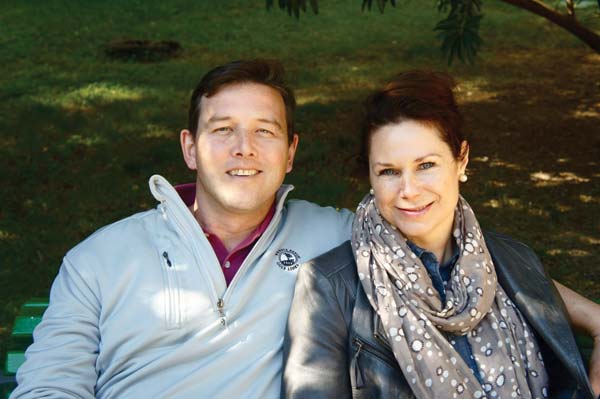 For Cornellians Erik and Trasey Codrington, extending the love of Jesus Christ to students in the Ivy League reflects the grace they have received from God themselves. Erik and Trasey met as undergraduates at Cornell in the 1980s, when the university was what they would describe as a "spiritual desert."
For Cornellians Erik and Trasey Codrington, extending the love of Jesus Christ to students in the Ivy League reflects the grace they have received from God themselves. Erik and Trasey met as undergraduates at Cornell in the 1980s, when the university was what they would describe as a "spiritual desert."
September 2, 2014
"Devote yourselves to prayer, being watchful and thankful." —Colossians 4:2
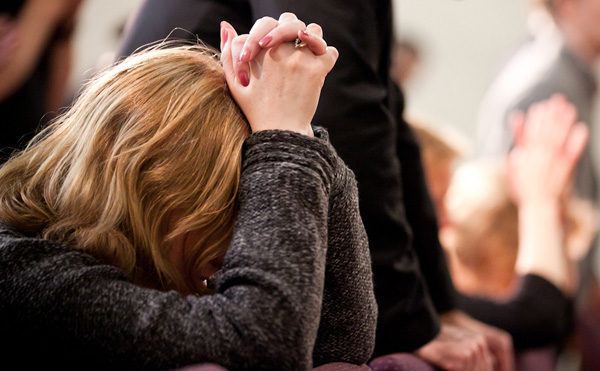 Frequent and fervent prayer is an essential part of our relationship with God. It is the natural product of genuine faith in God and His promise that He will hear and answer us. Though the practice of prayer is simple enough for a child to perform, prayer is also a complex discipline in which every Christian continues to grow and develop throughout life.
Frequent and fervent prayer is an essential part of our relationship with God. It is the natural product of genuine faith in God and His promise that He will hear and answer us. Though the practice of prayer is simple enough for a child to perform, prayer is also a complex discipline in which every Christian continues to grow and develop throughout life.
September 1, 2014
Christian Union Commissions Leadership Team
By Tom Campisi, Managing EditorEarly this summer, Christian Union introduced the faculty for its new leadership development ministry at Brown University.
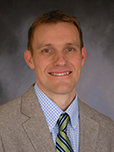 Christian Union's strategic focus on high-achieving students at universities like Brown requires a curriculum and faculty suitable for men and women of exceptional intellectual caliber. And Matt Woodard (pictured, left) and Justin Doyle—with seminary degrees and real-world work experience—exemplify this high standard for ministry faculty.
Christian Union's strategic focus on high-achieving students at universities like Brown requires a curriculum and faculty suitable for men and women of exceptional intellectual caliber. And Matt Woodard (pictured, left) and Justin Doyle—with seminary degrees and real-world work experience—exemplify this high standard for ministry faculty.August 8, 2014
Exhibit Exposes the Pain of the Hook-up Culture
By Eileen Scott, Senior Writer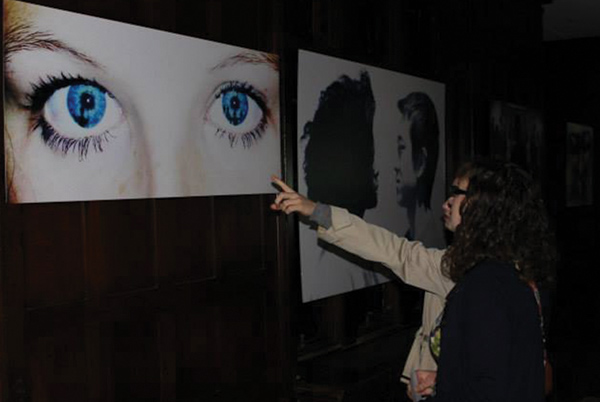 An art show at Princeton University helped to lift the veil of the hookup culture and expose the inner hurt it renders.
An art show at Princeton University helped to lift the veil of the hookup culture and expose the inner hurt it renders.On April 25, The Alternative, a student organization supported and resourced by Christian Union, hosted an art exhibit entitled Redress at the Campus Club in Princeton. The exhibit was intended to give a voice to the unspoken emotional and psychological damage of casual sex and encourage a lifestyle of sexual integrity.
August 8, 2014
Brown's Religious Heritage Part of University's 250th Anniversary
By Catherine Elvy, Staff Writer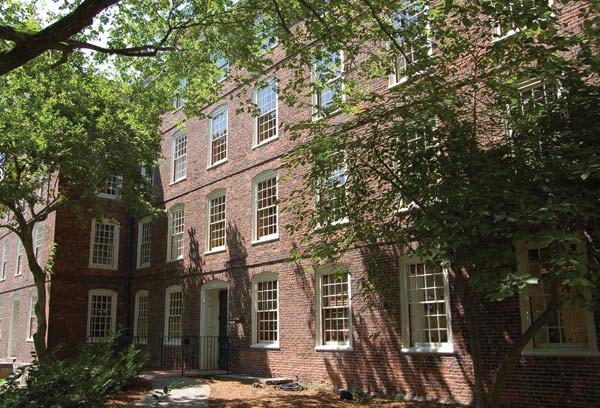 In March, Brown University kicked off a 15-month celebration of its 250th anniversary with a dazzling fireworks display and 600-pound birthday cake replicating its iconic University Hall.
In March, Brown University kicked off a 15-month celebration of its 250th anniversary with a dazzling fireworks display and 600-pound birthday cake replicating its iconic University Hall.Brown is staging exhibits, speeches, performances, and a series of events through commencement 2015 to pay tribute to the university's founding in 1764 in the colonial outpost of Rhode Island.
"We want to use this opportunity to reflect on our history, to think about Brown today and in the future," said President Christina Paxson, Columbia Ph.D. '87 and a former Princeton University administrator.
As part of the commemorative efforts, Brown is showcasing an interactive timeline that includes a look back at the university's religious roots, which were intertwined with the birth of a new nation.
August 8, 2014
Lecture Exhorts Graduate Students to be Ambassadors
By Catherine Elvy, Staff Writer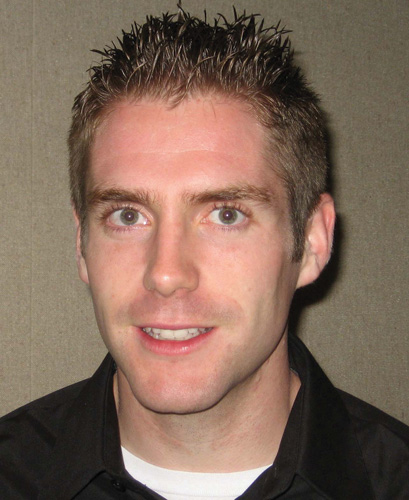 Science is hyped as the definitive authority for modern society, leaving many secular researchers with the potential for greater platforms – and more credibility – than their pastoral counterparts.
Science is hyped as the definitive authority for modern society, leaving many secular researchers with the potential for greater platforms – and more credibility – than their pastoral counterparts.As such, Christians who labor in scientific fields need to pause to consider the spiritual and cultural responsibilities tied to their roles as ambassadors for Christ.
That was one of the themes from Matt Farrar when the post-doctoral associate in Cornell University's neurobiology and behavior department spoke on campus at a lecture hosted by the Graduate at Christian Fellowship Roundtable and the Chesterton House.
Farrar, Cornell Ph.D. '12, appeared at The Big Red Barn Graduate and Professional Student Center on April 12 to deliver a presentation entitled "Regnant Priests of a Neo-Orthodoxy: Science, Faith and Authority in the 21st Century." Farrar, a physicist who focuses on the development of nonlinear optical tools in studies of spinal cord injuries, based his presentation upon the writings of a series of Christian scholars, including Mark Noll, a historian who specializes in Christianity.
Farrar noted that many leading voices in Western Society question whether religion is a valid source of knowledge. And this perception is at the core of the issue for believers who work in secular fields.
"If knowledge of God no longer counts, what does count for knowledge?" Farrar asked rhetorically. Taking his concerns a step further, Farrar also rhetorically questioned whether Christianity should be cast aside to the realm of astrology, witchcraft, and mythology.
As for the scientific arena, the field is highly revered and features formidable barriers to entry – making practitioners, in effect, the modern clerics of the secular world. As well, much of what the public knows about science originates from "received tradition," and even fellow scientists have limited abilities to test claims, access complete texts of scholarly articles, and fully understand highly specialized research.
"We accept a lot because we receive it," said Farrar.
Glancing through history, Christianity has fallen from a place of
esteem – and source of legitimate knowledge, according to Farrar – because of wars and political conflicts carried out under the banners of religious motivation. Other sources of reputational damage stem from clashes between religion and science dating back to the so-called Galileo affair and from the marked separation of church and state within the constitutional framework of the United States.
The upshot is the undermining of the value of Christianity in governance and as a worldview.
On a positive trend, younger scientists appear less likely to be identified as atheists than their older counterparts, an observation echoed by some Christians in academia.
"That has been my sense for many years," said Karl Johnson, Cornell '89, Ph.D. '11, founding director of the Chesterton House.
"The militant secularism in the academy peaked more than a decade ago," Johnson said. Younger scientists are "a little more open to the possibility of religious beliefs" offering some benefits.
Also impacting the intersection of faith and scholarship, some Western churches have shifted from pursuing seminary-trained pastors to instead embracing preachers trumpeted for their energy, magnetism, and communication skills.
"You see a shift from moral knowledge to charismatic authority," said Farrar. "Historically, pastors were educated experts on matters vital to the world."
As for believers who labor in the sciences, Farrar strongly encouraged them to relish their worldly platforms and professional esteem.
"Develop a thoroughly informed faith that is congruous with your level of education," Farrar said. "You're going to be someone's professor, coworker..."
Farrar, who will join the faculty of Messiah College in fall 2015, urged Cornell graduate students to peruse materials related to faith in their chosen fields and to investigate voraciously key apologetics.
"Hold knowledge not just as a weekend hobby," he said.
Likewise, "support and encourage pastors.... Encourage them to share their knowledge," Farrar said.
Ultimately, scientists who are believers should embrace their roles as spiritual ambassadors, even within the rigorous world of scientific inquiry.
Farrar said he sides with St. Thomas Aquinas, the philosopher priest who embraced the existence of God as a self-evident truth. With that comes a call for like-minded believers to decide how to shape the culture of their professional spheres.
"Christians in the sciences have a vital part to play in presenting Christianity as a true body of knowledge," said Farrar.
August 8, 2014
Organization Denies Membership to Choose Life at Yale
By Matthew Gerken, Yale '11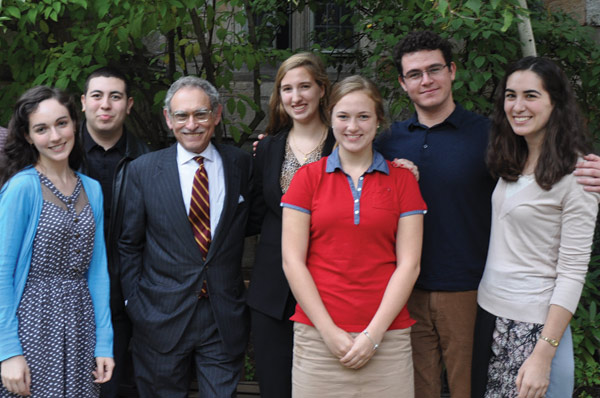 Editor's note: The following article originally appeared in First Things. Reprinted with permission. (Photo: Members of Choose Life at Yale with Amherst College Professor Hadley Arkes at the 2013 Vita et Veritas Conference.)
Editor's note: The following article originally appeared in First Things. Reprinted with permission. (Photo: Members of Choose Life at Yale with Amherst College Professor Hadley Arkes at the 2013 Vita et Veritas Conference.)In April, Yale's campus pro-life group—after a year in which they participated in meetings and even helped raise money for the organization—became the first group in living memory to be denied membership in the Social Justice Network of Dwight Hall. Billing itself as an "independent" and "nonsectarian" center for public service and social justice, Dwight Hall at Yale is a group that seeks "to foster civic-minded student leaders and to promote service and activism in New Haven and around the world." Though legally independent, it is the university umbrella organization for service and advocacy, encompassing dozens of member organizations that address almost every conceivable issue, from the environment, to gay rights, to Palestinian statehood.
Membership would have given Choose Life at Yale (CLAY) access to a variety of resources, including coveted meeting locations, use of Dwight Hall's vehicles for service projects, and a seat at the table during Dwight Hall's freshman recruiting events. But most of all, it would have affirmed the conviction of CLAY members that the cause they served, whether by marching in D.C. or volunteering at a crisis pregnancy center, was a legitimate component of social justice.
Social justice is a term that has perhaps been used too indiscriminately for its own good, and members of Dwight Hall's Social Justice Network might be surprised to learn that the term arose from the writings of a reactionary Italian Jesuit. But regardless of the history, it seems to me that if social justice means anything, it has to recognize the social nature of the type of justice it describes. Social justice is about our relationships with one another and with institutions, not our individuality and autonomy. That's why, contrary to many of my friends on the right, it makes a good deal of sense to me to describe inescapably communal issues such as environmental degradation as the proper subjects of social justice.
There's a deeper truth that can be expressed in the term, though, in an age in which justice simply expressed is so often seen solely as a matter of individual autonomy. Social justice helps to remind us that humans are social by nature, and that nearly all of our decisions carry social consequences, often far greater than we can see. It can express the truth that the presence of the homeless on the streets of one of the wealthiest universities in the world is not merely a matter of the right to a hot meal and a roof, but is also the breakdown of a relationship between members of a community. Social injustice is a communal failure to love.
It's this sense that made Choose Life at Yale a natural fit for the social justice hub of Yale. Pro-lifers at Yale have long gotten over the idea that they'd get anywhere arguing with their peers about whose right to autonomy trumped whose, and so they charted a new direction. They took up their cause as a matter of social justice. They realized that abortion has never been solely a matter of a baby's life and liberty. It's about the desperation and hopelessness of the mother that walked into the clinic. It's about the grandfather who will never put that little girl in his lap. It's about the classmates who will never sit next to her, and the boy who will never work up the courage to write her that awkward poem. It's even about that friend whom she would drift away from over the years, the successful sister who would make her insecure, and the God she'd curse when she lost her job and then her mortgage. The biggest lie in all this is that the choice to end (or to save) a life is a solitary one.
We don't know why Dwight Hall denied membership to the pro-life group. The ballot was secret and the count unannounced, and the established procedure (perhaps ironically for a social justice organization) allotted only sixty seconds for CLAY to make their case, while strictly banning any further discussion. We know it couldn't have been perceived religious differences, since Dwight Hall already contains Christian, Jewish, and secular groups. We know it couldn't be CLAY's political advocacy, because Dwight Hall endorses advocacy—even legislative advocacy—as part of its mission and a core component of many of its groups' activities.
Perhaps it is because CLAY's work cuts too close to the core. Perhaps it makes many of Dwight Hall's leaders uncomfortable to be challenged by the witness of pro-lifers taking time from their week to serve women in need, whether in order to ease their choice for life or to help them heal after they have chosen otherwise. Perhaps it challenges their comfortably individualistic assumptions about abortion because it is too close to what they themselves do when they feed the hungry, clothe the poor, or care for the sick. Perhaps it makes some of them—if only for a brief moment—rethink the meaning of the call to love and serve. That would explain why they have to push it away so quickly and quietly, because they know that this is how social justice movements begin.
Matthew Gerken is a former president of Choose Life at Yale.
August 8, 2014
Serving the Common Good
By Tim Keller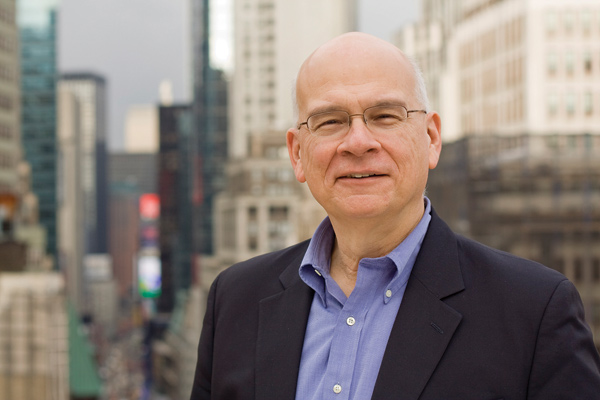 Editor's note: The following article is reprinted with permission from The Center for Faith & Work, the cultural renewal arm of Redeemer Presbyterian Church in New York City.
Editor's note: The following article is reprinted with permission from The Center for Faith & Work, the cultural renewal arm of Redeemer Presbyterian Church in New York City.I am often asked: "Should Christians be involved in shaping culture?" My answer is that we can't not be involved in shaping culture. To illustrate this, I offer a very sad example. In the years leading up to the Civil War, many southerners resented the interference of the abolitionists, who were calling on Christians to stamp out the sin of slavery. In response, some churches began to assert that it was not the church's (nor Christians') job to try to "change culture," but only to preach the Gospel and see souls saved. The tragic irony was that these churches were shaping culture. Their very insistence that Christians should not be changing culture meant that those churches were supporting the social status quo. They were defacto endorsing the cultural arrangements of the Old South. (For more on this chapter in American history, see Mark Noll, The Civil War as a Theological Crisis.)
This is an extreme example, but it makes the point that when Christians work in the world, they will either assimilate into their culture and support the status quo or they will be agents of change. This is especially true in the area of work. Every culture works on the basis of a 'map' of what is considered most important. If God and His grace are not at the center of a culture, then other things will be substituted as ultimate values. So every vocational field is distorted by idolatry.
Christian medical professionals will soon see that some practices make money for them but don't add value to patients' lives. Christians in marketing and business will discern accepted patterns of communication that distort reality or which play to and stir up the worst aspects of the human heart. Christians in business will often see among their colleagues' behavior that which seeks short-term financial profit at the expense of the company's long-term health, or practices that put financial profit ahead of the good of employees, customers, or others in the community. Christians in the arts live and work in a culture in which self-expression is an end in itself. And in most vocational fields, believers face work-worlds in which ruthless, competitive behavior is the norm.
There are two opposite mistakes that Christians can make in addressing the idols of their vocational fields. On the one hand they can seal off their faith from their work, laboring according to the same values and practices that everyone else uses. Or they may loudly and clumsily declare their Christian faith to their co-workers, often without showing any grace and wisdom in the way they relate to people on the job.
At Redeemer, especially through the Center for Faith and Work, we seek to help believers think out the implications of the Gospel for art, business, government, media, entertainment, and scholarship. We teach that excellence in work is a crucial means to gain credibility for our faith. If our work is shoddy, our verbal witness only leads listeners to despise our beliefs. If Christians live in major cultural centers and simply do their work in an excellent but distinctive manner, it will ultimately produce a different kind of culture than the one in which we live now.
But I like the term "cultural renewal" better than "culture shaping" or "culture changing/transforming." The most powerful way to show people the truth of Christianity is to serve the common good. The monks in the Middle Ages moved out through pagan Europe, inventing and establishing academies, universities, and hospitals. They transformed local economies and cared for the weak through these new institutions. They didn't set out to "get control" of a pagan culture. They let the Gospel change how they did their work and that meant they worked for others rather than for themselves. Christians today should be aiming for the same thing.
As Roman society was collapsing, St. Augustine wrote The City of God to remind believers that in the world there are always two "cities," two alternate "kingdoms." One is a human society based on selfishness and gaining power. God's kingdom is the human society based on giving up power in order to serve. Christians live in both kingdoms, and although that is the reason for much conflict and tension, it also is our hope and assurance. The kingdom of God is the permanent reality, while the kingdom of this world will eventually fade away.
Tim Keller, a best-selling author and apologist, is the founding pastor of Redeemer Presbyterian Church in New York City.
May 28, 2014
"The highest and best use of power is when it is put in the service of those who have none..."
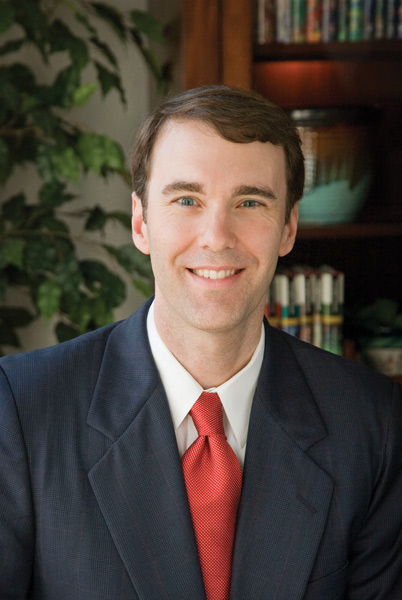 Christian Union: The Magazine recently interviewed D. Michael Lindsay (Princeton Ph.D. '06), the president of Gordon College and a Pulitzer Prize-nominated sociologist. Dr. Lindsay's latest book, View from the Top: An Inside Look at How People in Power See and Shape the World, is the culmination of an unprecedented Platinum Study of 550 top CEOs and senior officials.
Christian Union: The Magazine recently interviewed D. Michael Lindsay (Princeton Ph.D. '06), the president of Gordon College and a Pulitzer Prize-nominated sociologist. Dr. Lindsay's latest book, View from the Top: An Inside Look at How People in Power See and Shape the World, is the culmination of an unprecedented Platinum Study of 550 top CEOs and senior officials.CU: Your first book was entitled Faith in the Halls of Power: How Evangelicals Joined the American Elite. Even though View from the Top is about leaders from various backgrounds, did faith and achievement again intersect in any way?
ML: I found Christ's example of sacrificial leadership modeled again and again in the lives of what I call "platinum leaders," those who have risen to the top of their institutions and are able to catalyze change. The relational dimension of leadership requires those who seek influence to think carefully about the ways their personal values and faith commitments intersect with their responsibilities. View from the Top was written for a general audience, but I think faith is so essential to good leadership that I added a conclusion to the text that seeks to explain how the two relate. Luke 12:48 says, "Unto whom much is given, much is required." The key idea of the book is that responsibility accompanies leadership. We must use the blessings we are given to bless others. The highest and best use of power is when it is put in the service of those who have none.
CU: As a leadership development ministry, Christian Union has a vested interest in mentoring. In View from the Top, you indicate the important role mentoring has played with some top executives. Could you elaborate?
ML: Mentorship is key for the development of young leaders. It is essential for providing access to well-connected networks and also for passing down wisdom and experience. In the stories of many leaders, I found a series of mentoring chains. For example, Harvard Kennedy School professor Dick Neustadt invested in the life and career of young NAACP lawyer Vernon Jordan, in particular by inviting him to join the Bilderberg Conference. Years later, Jordan invited his friend and protégé Bill Clinton to the conference, introducing him to other global leaders. Indeed, we all benefit from mentors who take an interest in our lives and help us become all that God wants us to be.
CU: In View from the Top, one of your chapters is entitled "Lead With Your Life: Because It's Much More than a Job." How do we lead with our lives? Who is someone that embodies this trait?
ML: As I quickly learned after becoming the president of Gordon, institutional leadership is much, much more than a 9-5 job. The CEO or the president is so closely associated with her organization that their very life must reflect the institution's values. Every leader who aspires to make a significant difference in her firm, industry, or in society must inspire her constituents, not only with her words, but with her actions, habits, and traits. The quickest way to bring down a political opponent is to uncover marital infidelity; voters surmise that a politician unfaithful to his wife will be unfaithful to his political promises. Similarly, when CEOs institute layoffs and pay cuts, while simultaneously raking in millions, employees, shareholders, and the general public resent the hypocrisy. One of my favorite examples (of leading with your life) is Colleen Barrett, the former president of Southwest Airlines, who really embodied the friendly and helpful persona of the airline.
CU: Talk about the role that large institutions play in shaping culture and why you encourage your students to embrace, not avoid large institutions when they look for jobs.
ML: The conceit of the Internet age is that now anyone with a wireless connection has the capability to influence millions—through a tweet, viral video, or Tumblr feed. Though widespread, these ephemeral forms of communication are not nearly as weighty as major institutions such as Harvard University, Procter & Gamble, the Wall Street Journal, or the Supreme Court. Events such as the Arab Spring of 2011 demonstrate that social media can precipitate revolutions, but they cannot maintain and organize the revolutionary impulse for long-term change. For that, society relies on institutions. By becoming part of these influential entities, students can begin to leverage their God-given talents for the widest impact.





